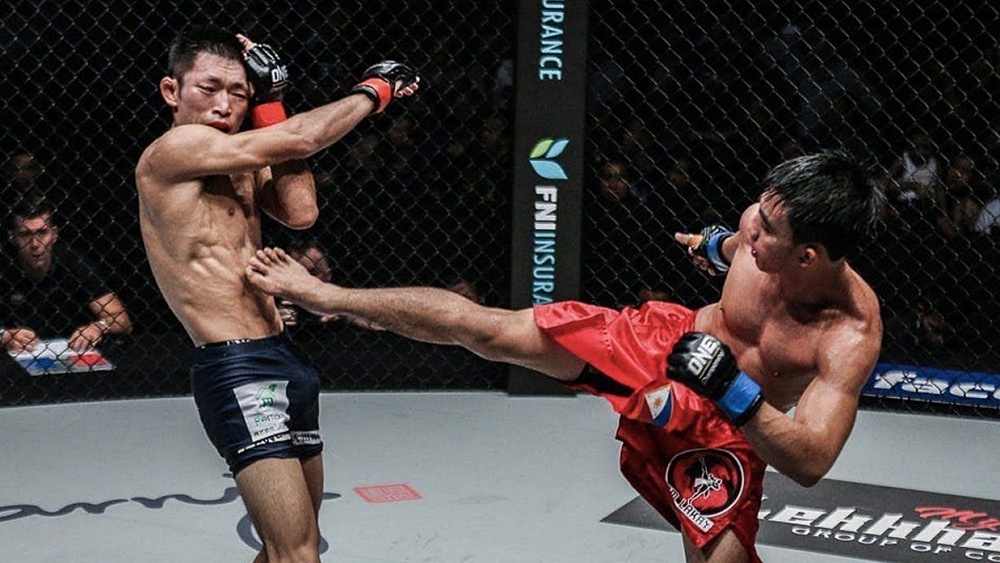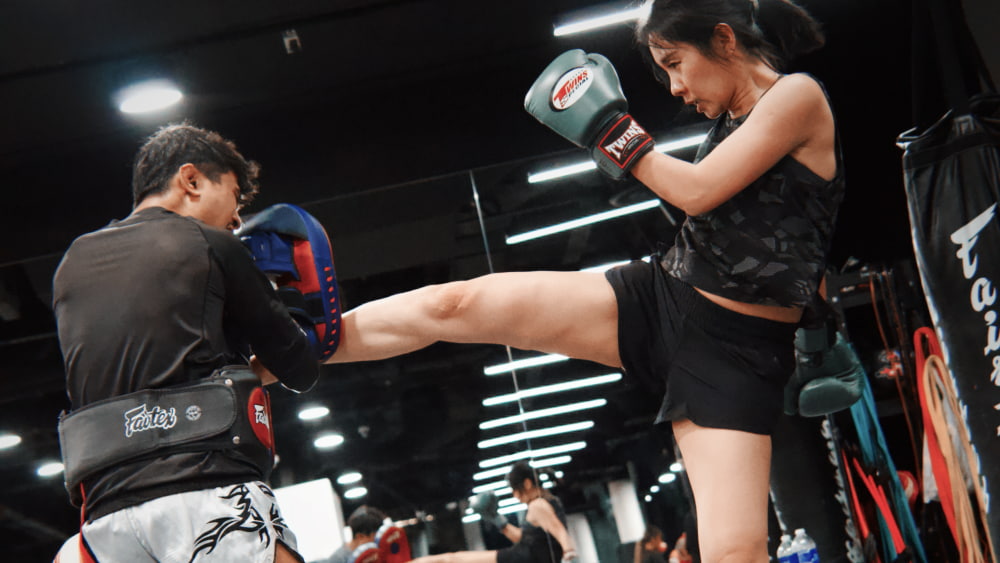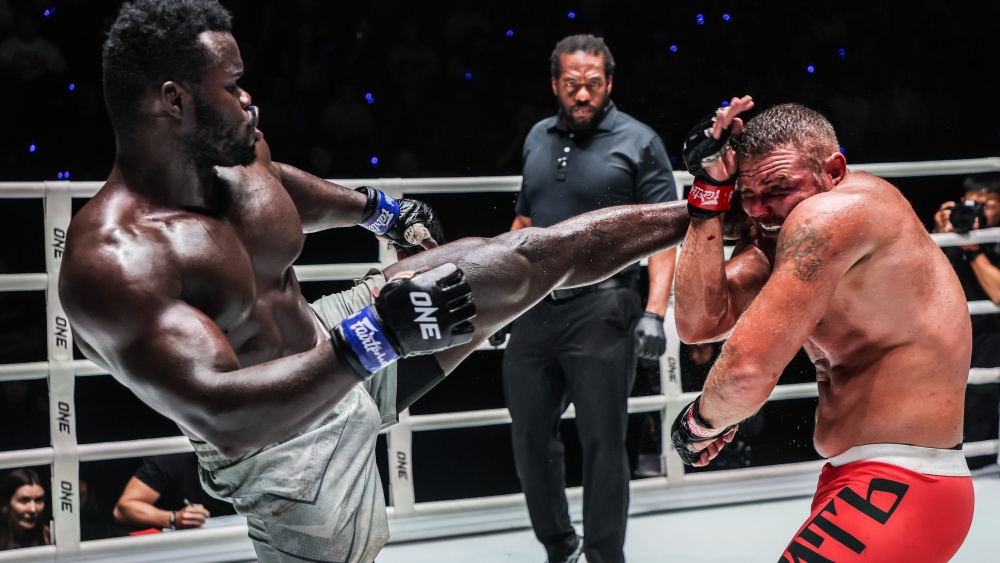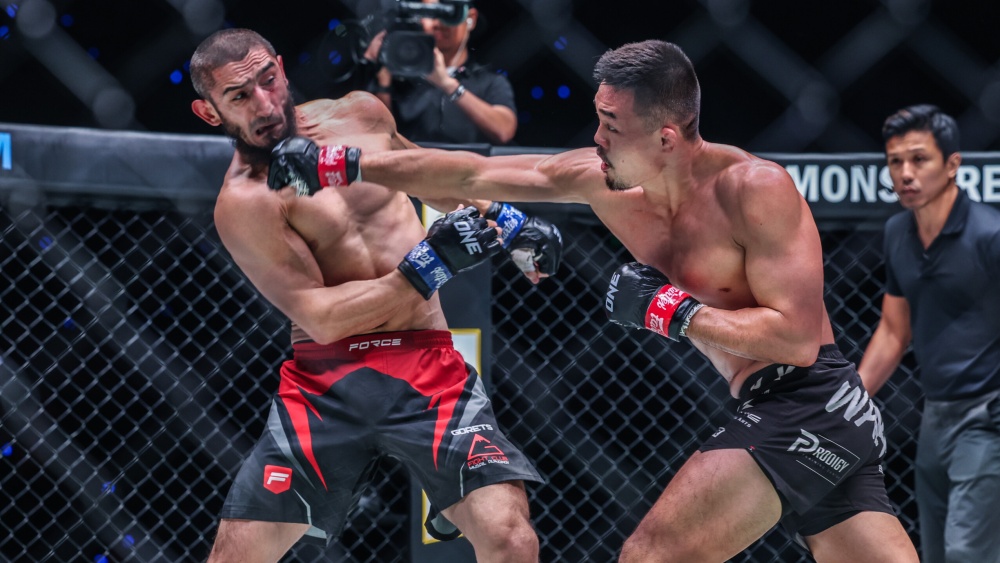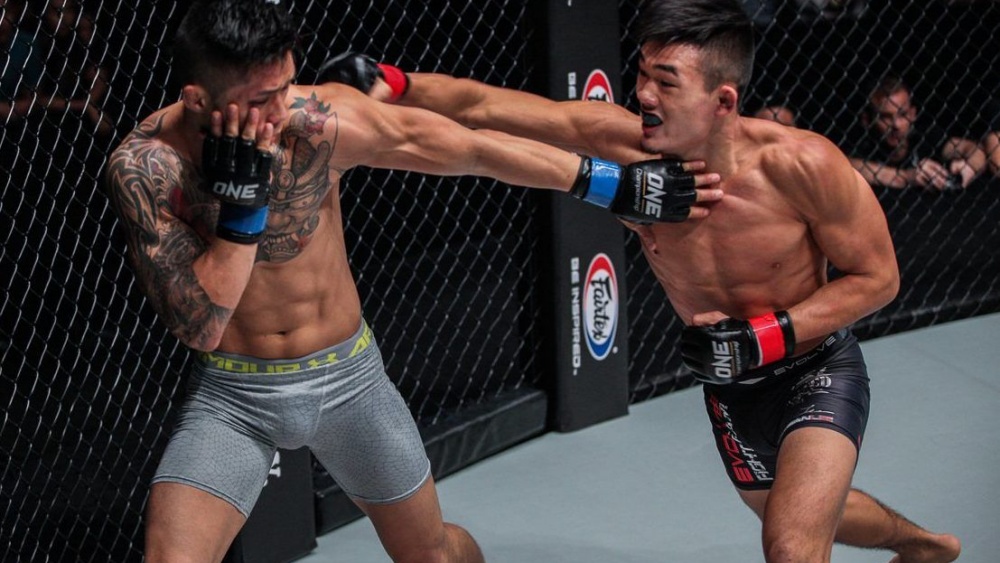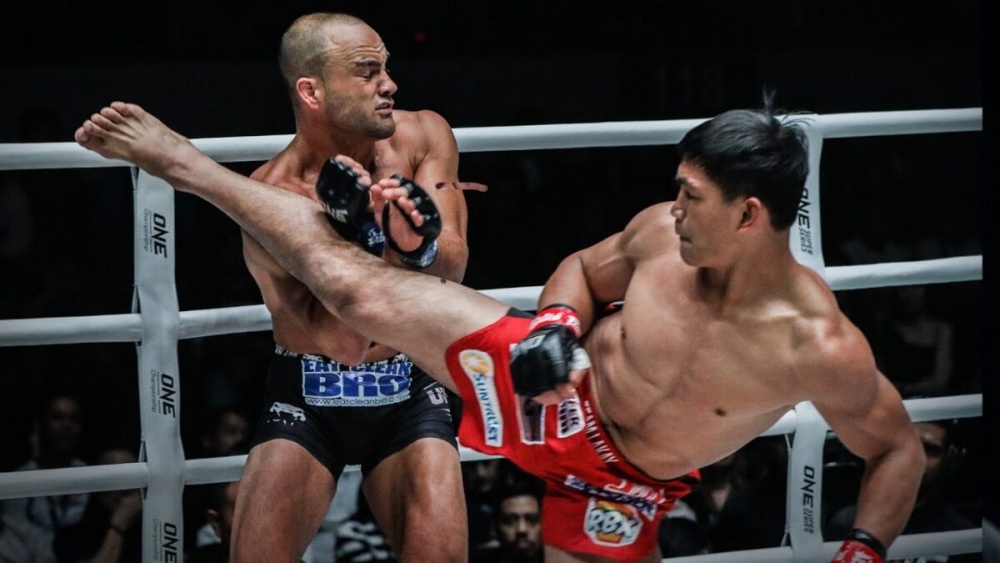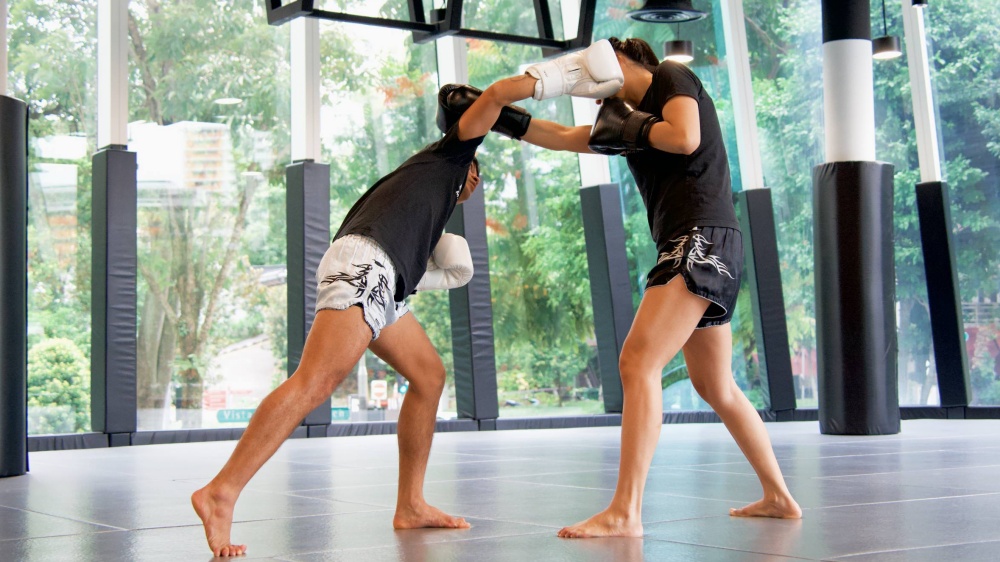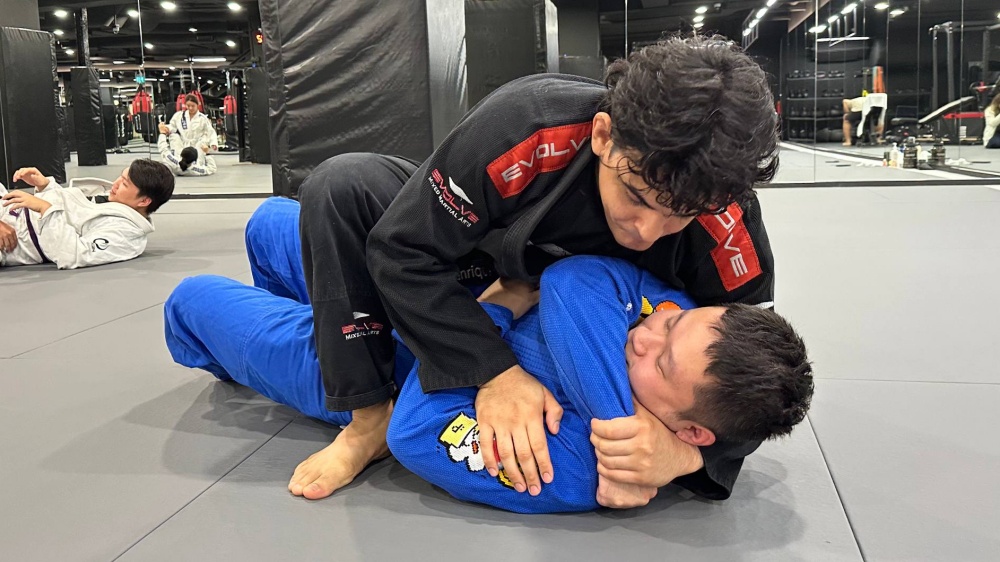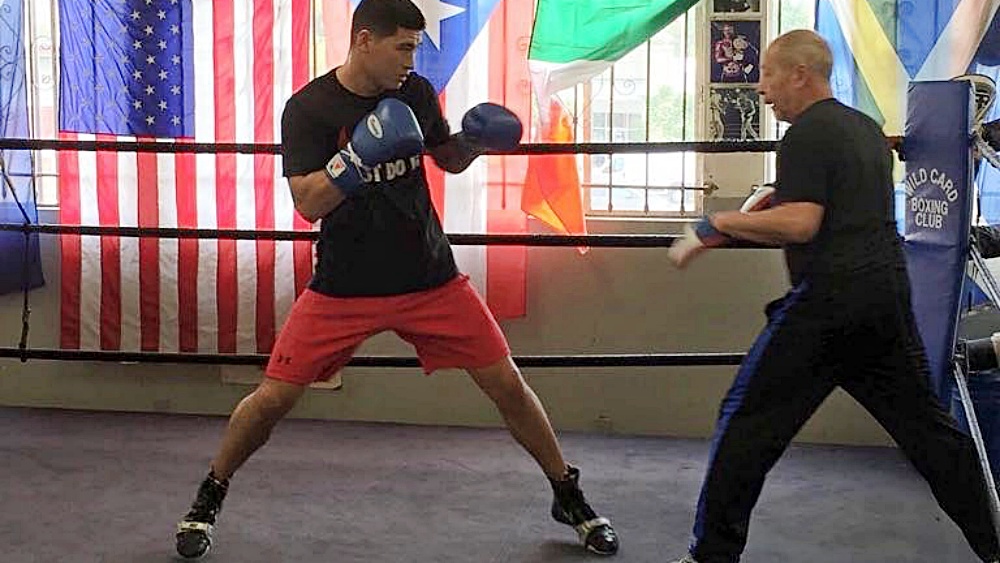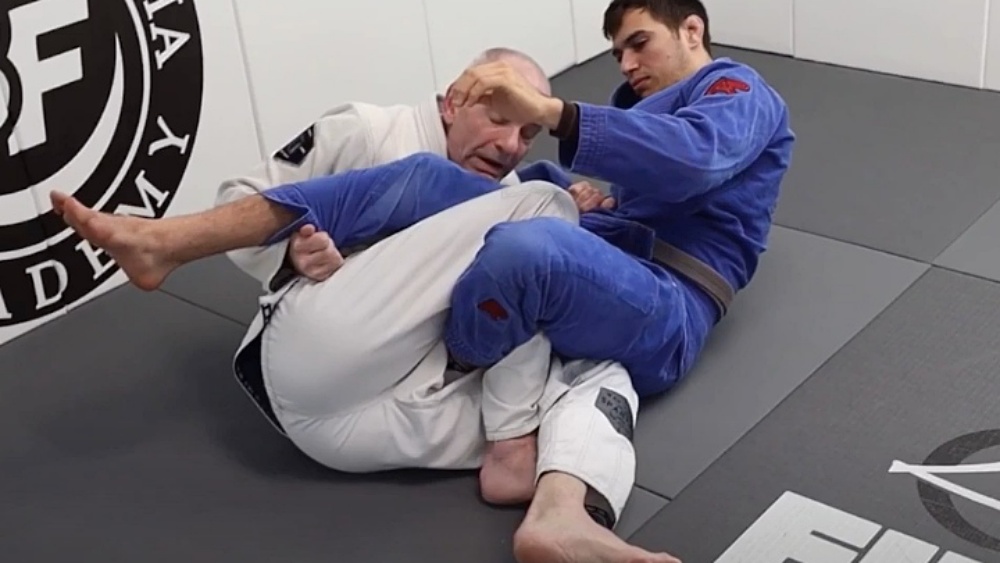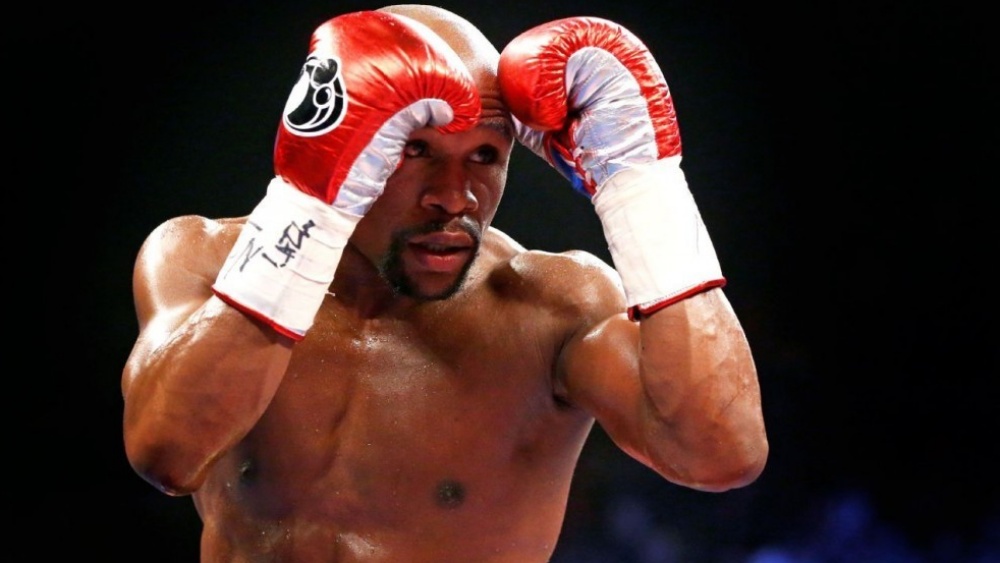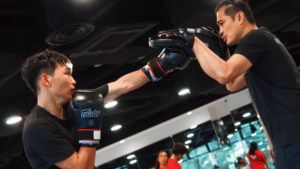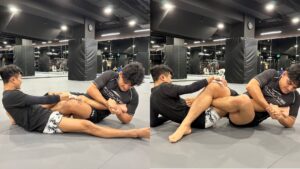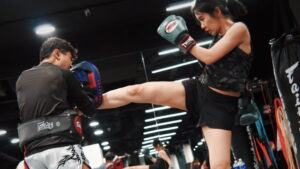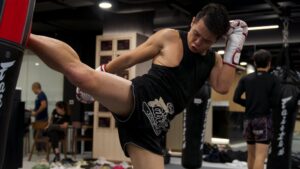Mixed martial arts has evolved dramatically since its inception, as fighters constantly push the boundaries of what techniques are effectively used inside the cage. While techniques like the rear-naked choke, guillotine, and double-leg takedowns have emerged as staples of the sport, other effective techniques are rarely used.
7 Techniques That Are Underrated And Underused In Mixed Martial Arts
Are you ready to go over some techniques currently underused in mixed martial arts? Let’s get started:
1) Oblique Kick
The oblique kick is often used by UFC heavyweight champion and former light-heavyweight champion Jon “Bones” Jones, but it isn’t that common to see anyone else in mixed martial arts using the technique.
The fact that many fighters view it as a “dirty” technique likely has a lot to do with why so many MMA fighters are reluctant to add it to their arsenals, even though the technique is perfectly legal.
An oblique kick targets your opponent’s knee. Landing one can turn the tide of a match, especially if their foot is planted firmly on the ground when the kick makes contact. The oblique kick serves many purposes, like disrupting your opponent’s balance, hindering their mobility, and setting up other strikes.
You don’t need to land more than a couple of oblique kicks to drastically hinder an opponent’s leg and make it hard for them to plant their foot. Landing oblique kicks takes power off opponents’ strikes since their feet need to be planted to optimize the force behind their strikes.
The key to making the oblique kick work for you is throwing it when your opponent’s foot is firmly fixed on the ground. The technique won’t do much if your opponent’s foot is off the ground since it will only push the leg back. Think of the oblique kick as an armbar done with a kick. The goal is the same: you want to push your opponent’s knee in the opposite direction of its natural range of motion.
Simply showing an oblique kick is enough to make many opponents hesitant to plant their lead foot, taking a lot of power off any strikes they throw. It’s also a technique you can pull off from kicking range, where you’re relatively safe.
2) Push Kick
Also known as the teep, the push kick is one of the most used kicks in Muay Thai, yet it’s rarely used in MMA despite how common it is for mixed martial artists to train in Muay Thai. The push kick is one of the most versatile kicks any Muay Thai fighter has in their arsenal, given its many uses, like maintaining distance, keeping aggressive opponents off you, and setting up other strikes.
The push kick can also help to drain your opponent’s stamina since it’s typically targeted at the abdomen or hips.
The teep is an effective way to set up any other strikes. The few MMA fighters who use the teep enjoy lots of success, but you don’t want to overuse it since you have to deal with the threat of takedowns in mixed martial arts. Muay Thai fighters only have to worry about getting their legs caught.
3) Sidekick
The sidekick technique is commonly used in traditional martial arts like Karate and Taekwondo. People who have transitioned to mixed martial arts have had lots of success with it inside the cage.
The sidekick is like these traditional martial arts versions of the teep and can be just as versatile. It can cause significant damage, serve as a range finder, set up combinations, or keep aggressive opponents off you.
The sidekick has been proven effective at all levels of mixed martial arts, and many fighters don’t know how to defend against it, making it even more effective.
One of the reasons why the sidekick is so underused in MMA is the high level of balance, flexibility, speed, and timing required to execute it effectively. People not trained extensively in traditional martial arts might find its mechanics challenging. It’s also a technique that requires a more traditional fighting stance, like the one Karatekas use.
4) Shoulder Strikes
Shoulder strikes gained some popularity when Conor McGregor bloodied Donald Cerrone’s nose with a series of them before putting him away, but you don’t see them being used much these days. The reality is that shoulder strikes hit hard enough to break someone’s nose.
Shoulder strikes are a low-risk-high-reward technique, so take some time to master them and look to land some whenever you find yourself in standing clinch positions.
5) Heel Hooks
Heel hooks are one of the most dangerous submissions used in combat sports, and many instructors are reluctant to teach it to anyone below the purple belt level. As a result, many MMA fighters aren’t as adept at defending against them.
Pulling off a heel hook in MMA has some challenges since you still have to defend against punches while going for it, but mixed martial artists who specialize in the technique enjoy lots of success with it.
6) Rubber Guard
The rubber guard is arguably the most effective way to control a person from the bottom guard position. It was developed by decorated BJJ player Eddie Bravo, and it requires high levels of flexibility to use. Unlike the close guard, which is the traditional BJJ technique used for maximum control, the rubber guard prevents your opponent from posting up and landing hard blows while opening up a few submission options. You don’t have many good submission options from the closed guard.
7) Uchi Mata
The Uchi mata is one of the most powerful yet straightforward throwing techniques used in Judo. It requires lots of practice to master but often results in a high-amplitude takedown that leaves opponents in compromised positions when successfully performed.
One of the things that makes this throw successful in MMA is that it can be performed from clinch positions that are often considered disadvantageous, such as when an opponent has secured double underhooks. The technique allows you to use your opponent’s forward movement against them, which happens frequently in MMA, such as when one fighter tries to push the other to the cage. Add this to your arsenal, and you’ll have many opportunities to pull it off.
Give Yourself An Advantage With These Underused Techniques
Despite the massive evolution of mixed martial arts in the past few decades, many techniques remain underused. Adding these lesser-known techniques into your arsenal can give you a significant edge during competitions.
You may also like:
Building The Perfect Fighter: The Role Of Technology In Modern MMA
